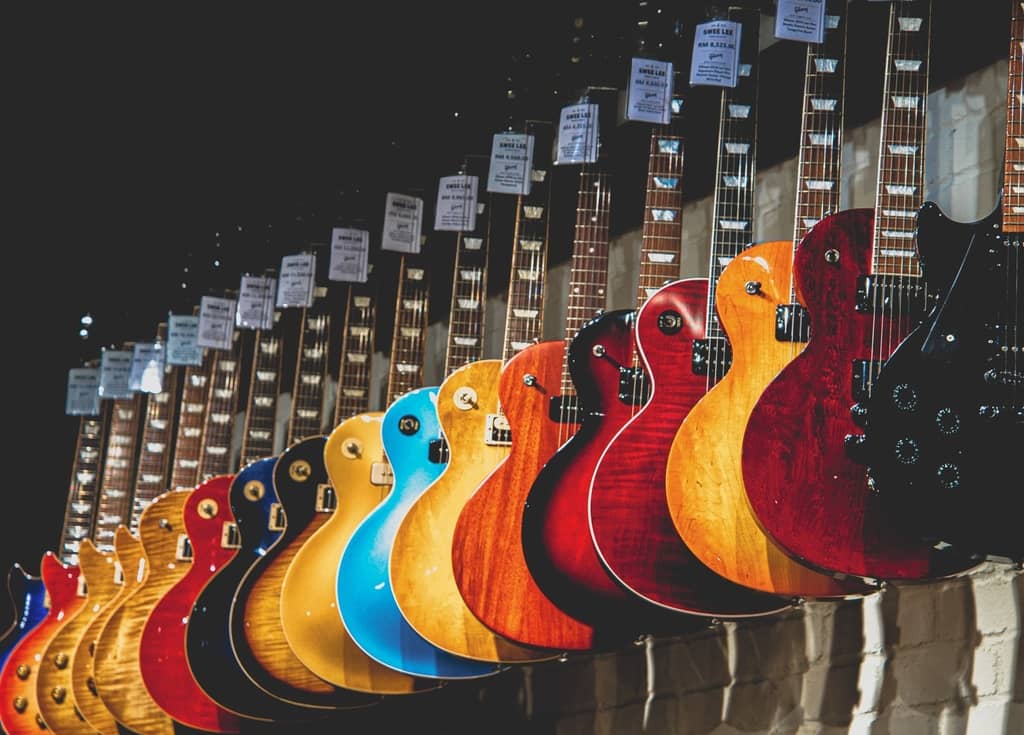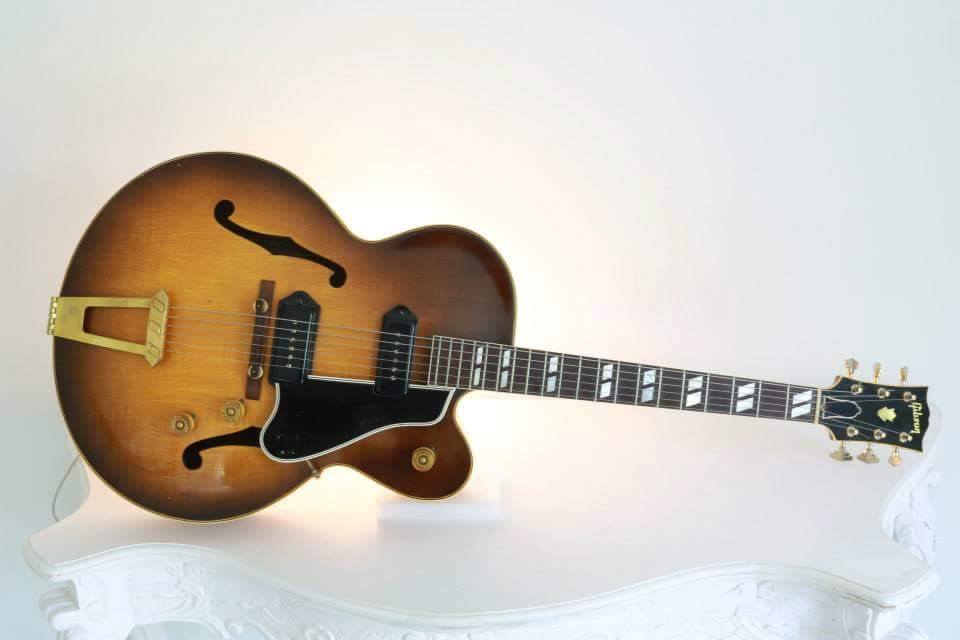The words Guitar and Gibson are almost synonymous, and with good reason. It was Gibson, in association with Les Paul, that made the first-ever solid-body electric guitar. Some of the most legendary guitarists ever, like Jimmy Page, Slash, Angus Young, and countless others, have all used Gibsons. However, this also means that Gibson guitars aren’t cheap. Even the most entry-level proper Gibson is more expensive than the higher mid-end guitars from other brands. So, is this extra premium in price worth it, or are you simply paying money for some hype and brand image? Let us find out.
Table of Contents
Are Gibson Guitars Good?
When so many established and legendary guitarists swear by the Gibson brand, there must be a reason for it, but this does not necessarily mean that if you go to a guitar store and pick up a Gibson, it will be a great guitar. It depends on how much of a premium price you are willing to pay, and even then, you might end up with a guitar that you do not like.
Here are a few issues that are quite common in Gibson guitars that you should be aware of if you are considering them.
Spotty Quality Control
There was a time when Gibson guitars were seen as the gold standard of electric guitars. Sadly, those days are long gone, and now, it is usually the opposite that is true. People have spent thousands of dollars on Gibsons and still ended up with everything from minor defects in the paint job and finish to major structural issues.
The reason for this is very simple. Gibson is no longer under the charge of musicians as it was during its initial days. Instead, it has become like any other business where a bunch of executives and accountants decide the direction the brand should take. Simply put, more emphasis is put on the profit margin than the quality of work. Corners are cut, and the resulting minor blemishes can feel like a punch in the gut at the price points these guitars command.
Fragile Headstock
Go through any Gibson guitars-related forum or ask a few guitar luthiers who repairs Gibsons on a regular basis, and you will find out that Gibson headstocks are quite prone to breaking, and this is an issue that has been there from the beginning.
Usually, two reasons are suggested for this. One of the unique features of the neck of a Gibson is the angle that the headstock makes with the fretboard. It is the highest among all the popular brands, and while this is great when it comes to the tone, structurally, it is quite weak. The second reason that further compounds this problem is the construction of the neck. It is made out of a single piece of wood which again is great for tone, but it makes the base of the headstock really weak. This is the reason why you have to be extra careful with these guitars, and even then, the headstock can just break off. While this can be repaired, it is usually a headache.

Tuning Issues
The design of Gibson guitars hasn’t changed a lot since the 50s, and many of the parts, such as the bridge and the nut, haven’t evolved much. The headstock angle also introduces an extra point of friction. All these factors combined make these guitars notoriously difficult to keep in tune. Gibson’s attempt at fixing this by introducing self-tuning machine heads was a hilarious failure that was abandoned very quickly.
Weight
Another feature of these guitars that prospective buyers often overlook is the weight. Gibson guitars are among the heaviest electric guitars. Some allege that this helps with the tone and sustain. However, there is a lot of debate over this. What cannot be debated is that the extra pounds can be a real problem if you play standing up for long durations at a time.
Innovation
It is true that you should not try to fix what isn’t broken, and the established nature of the Gibson brand may suggest that it does not need any innovation. However, their dwindling sales figures over the last couple of decades seem to suggest otherwise. The other less established guitar brands are trying to innovate with their guitars. That is something Gibson has a particular aversion to. On the rare occasions that they do try to innovate, it only makes things worse.
So, to answer the question of whether Gibson guitars are good, it all depends on how much you value the Gibson brand despite all these flaws.
Are Gibson Guitars Worth The Money?
At the time of writing this, the world’s most expensive car ever sold in an auction is a Ferrari 250 GTO from 1962. If you look this particular car up, you will be surprised to find out that it suffers from problems like improperly closing doors, uneven panels, and a fuel system that has a propensity to leak, and yet, it commanded a price close to $50 million. Brand new and impeccable cars are available at a very meager fraction of this cost. This high price is because of the history, legacy, and rarity associated with the 250 GTO. The same concept applies here as well. The premium price that Gibson guitars command isn’t because they are great guitars. They are usually pretty good, but playability-wise and tone-wise, you could get guitars that are just as good if not better at prices that are much cheaper.
Are Gibson guitars worth the exorbitant price tags they can come with? It all depends on your expectations and what you value in a guitar. If you are a practical person who does not care what it says on the headstock or what the shape of the headstock is, then you can get an equally nice-sounding and nice-playing guitar for a fraction of the cost. On the other hand, if you value brand image and all the history and legacy that comes with a particular name, then the price may be justifiable for you.

>>Also Read: Worst Guitar Strings To Avoid
Are Gibson Guitars Overpriced?
Gibson guitars, like almost every material thing, are governed by the law of diminishing returns. The really entry-level guitars will come with compromises both in terms of features and looks. Then, as you move up through the price range, you will get more features and an overall better guitar. However, there comes a price point beyond which there is no meaningful improvement other than the model being inspired or endorsed by a certain artist, or it could be a part of a limited run. As long as you figure out the price point that offers you the maximum bang for the buck, the exact number on the price tag does not matter.
From a purely objective point of view, though, Gibson guitars are definitely on the overpriced side. As alluded to earlier, you can get guitars just as good for a lot cheaper. The premium you pay will be for the brand. Another aspect of buying Gibson guitars is that sometimes, it can be an investment. The right model can go up in value immensely. However, figuring out which model will go up in value instead of depreciating like everything else is a gamble and a risk.
Should You Get A Gibson Guitar?
Irrespective of what many people might suggest, there is nothing magical about Gibson guitars. It is just a brand that has stood the test of time, and as such, it has a certain value attached to its brand image. It is like Nike or Pepsi. If you have the money and want something cool, a Gibson guitar might be worth it. However, it won’t make you a better guitarist if that is what you are after.
Leave a Reply